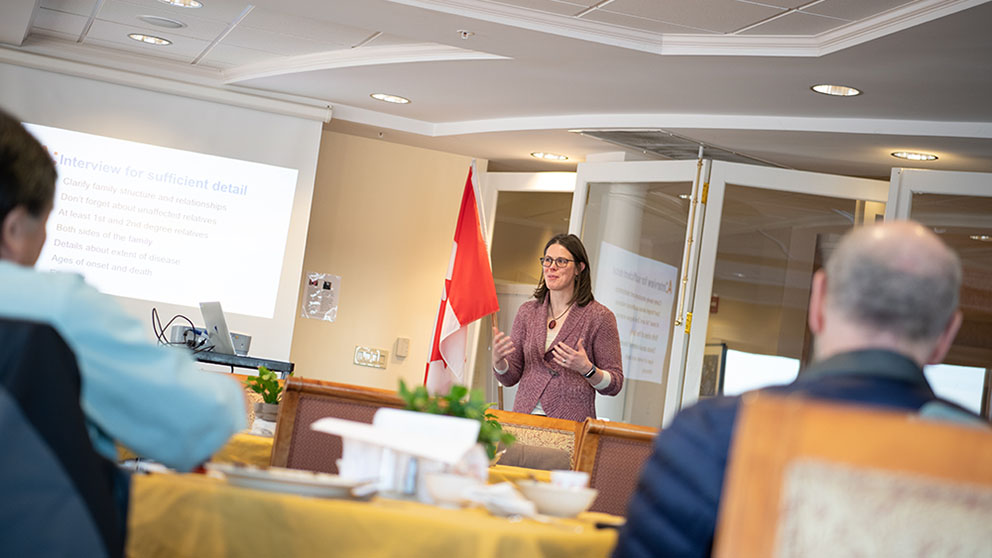Diversity, Equity and Inclusion Blog Series

The Clinical & Continuing Education team at The Jackson Laboratory is excited to announce a new Diversity, Equity & Inclusion series within our blog communications with healthcare providers. We recognize that there is a lot to learn, and much we can do to make access to and participation in genetic services more equitable. We have been delving into resources within the genetics community and the healthcare community at large, and admittedly, it is overwhelming. To help guide these efforts, we plan to engage with experts interested in raising awareness and moving forward with initiatives to address diversity, equity and inclusion in genetic care. We want to explore areas where genomic medicine has fallen short in communities of color, the (dis)ability community and others whose voices need to be heard. We hope to engage diverse perspectives on how we can address these issues together. The goal is to help clinicians recognize areas for improvement, employ creative solutions, and provide genomic care that meets each individual’s needs.
A DEI blog series about genetics in healthcare
We recognize that the national conversation on DEI issues is active and evolving. This means our plans for blogs and other educational activities will change, and the approach to each topic will also shift as important viewpoints and concerns come to our collective awareness. Working with our partners, we plan to explore:
1. Structural racism and unconscious bias in genetic medicine
Unconscious bias and structural racism create and perpetuate disparities in access to genetic services. We will explore how these affect referrals of Black, Indigenous and people of color (BIPOC) to genetic services. For example, can we decrease cancer health disparities by being better at identifying BIPOC at increased risk for hereditary cancer syndromes? What programs and resources are available to your practice?
2. Lack of genetic diversity in research
Existing gaps in data about genomic variation in non-white populations affect the usefulness of genomic testing, such as decreased utility of common carrier screening assays in non-white populations. Other topics may be explored, such as the limitations of data on polygenic risk scores when diverse populations are not included in obtaining that data. How can we be culturally sensitive about increased genetic risk in specific populations? Race is not genetics, so how can we best approach these sensitive issues of difference?
3. Engaging BIPOC in genomic medicine
Do BIPOC individuals have unique concerns about engaging in consumer genomic testing or population genomic projects? What are the concerns identified, and are there specific communities where these concerns are most prevalent? Will addressing diversity in the genetic workforce be a step towards an increased readiness for patients to voice these concerns?
4. Practicing culturally competent genomic medicine
We want to help by providing guidance in specific areas of practice. For example: How can healthcare providers collect family history in a culturally sensitive manner? How do people of different cultures share genetic results? What are the needs of individuals who are differently abled? Considerations in the LGBTQ community? What resources can providers rely on to help them practice culturally competent genomic medicine?
5. How can we foster trust in genetic care after a history of eugenics?
Relying on scholarship in the history of medicine, we hope to address the hesitancy of those hurt by the practice of eugenics and racism to participate in genetics. How much does this history affect acceptance of genetic medicine? How do we move past the history, drawing on principles of restorative justice, to build trust?
Let us know what is important to you
We want to hear from you! Clinicians, we want to know what your needs are. Researchers and educators interested in becoming part of the conversation, reach out. Suggest ideas for future topics. Let us know if you are interested in adding your voice to the discussion, or if you have colleagues who can enrich the conversation.
Email us at CCEP@jax.org
Find us on Twitter @JAX_ClinicalEd